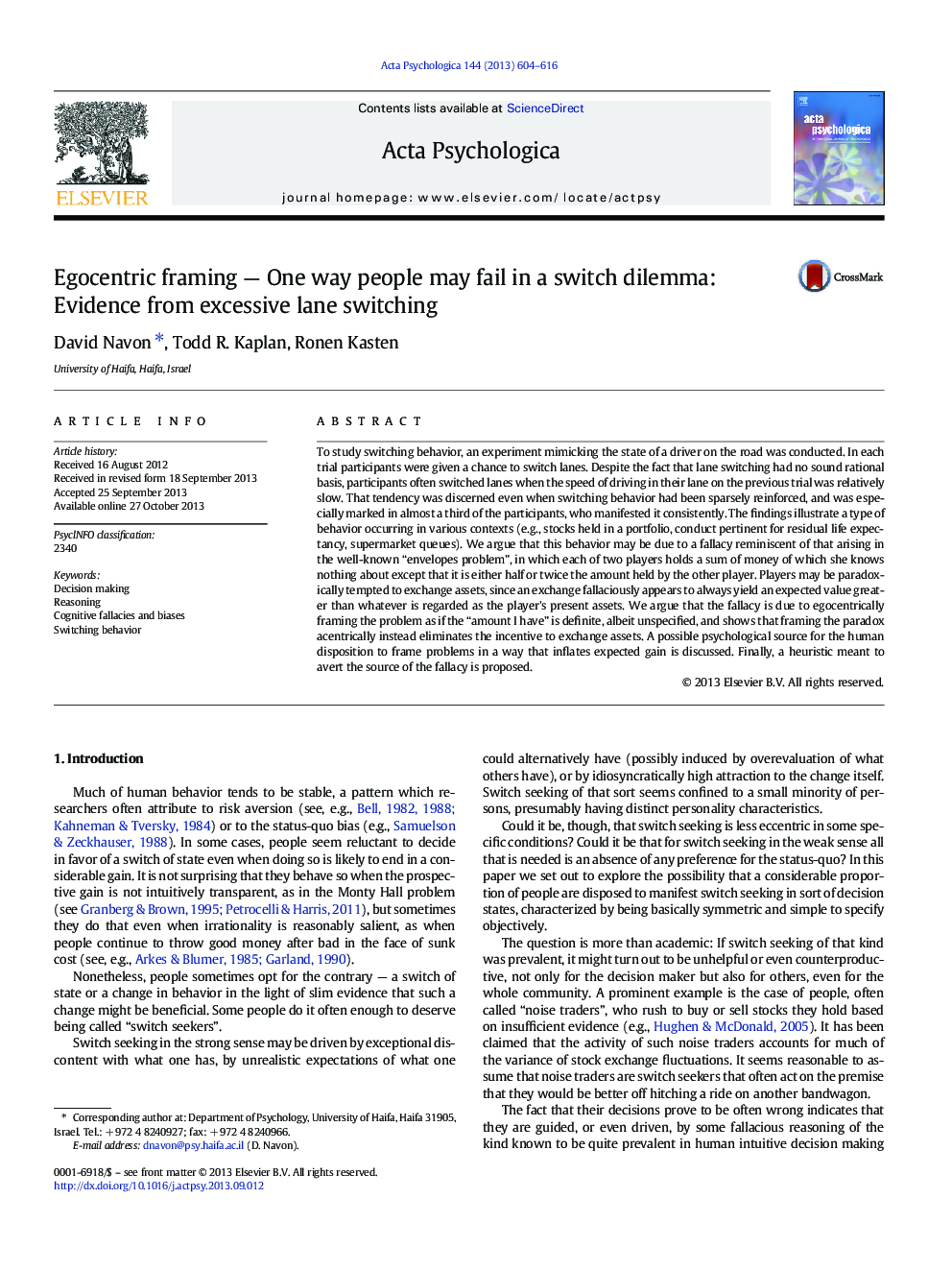| Article ID | Journal | Published Year | Pages | File Type |
|---|---|---|---|---|
| 10453812 | Acta Psychologica | 2013 | 13 Pages |
Abstract
To study switching behavior, an experiment mimicking the state of a driver on the road was conducted. In each trial participants were given a chance to switch lanes. Despite the fact that lane switching had no sound rational basis, participants often switched lanes when the speed of driving in their lane on the previous trial was relatively slow. That tendency was discerned even when switching behavior had been sparsely reinforced, and was especially marked in almost a third of the participants, who manifested it consistently. The findings illustrate a type of behavior occurring in various contexts (e.g., stocks held in a portfolio, conduct pertinent for residual life expectancy, supermarket queues). We argue that this behavior may be due to a fallacy reminiscent of that arising in the well-known “envelopes problem”, in which each of two players holds a sum of money of which she knows nothing about except that it is either half or twice the amount held by the other player. Players may be paradoxically tempted to exchange assets, since an exchange fallaciously appears to always yield an expected value greater than whatever is regarded as the player's present assets. We argue that the fallacy is due to egocentrically framing the problem as if the “amount I have” is definite, albeit unspecified, and shows that framing the paradox acentrically instead eliminates the incentive to exchange assets. A possible psychological source for the human disposition to frame problems in a way that inflates expected gain is discussed. Finally, a heuristic meant to avert the source of the fallacy is proposed.
Related Topics
Life Sciences
Neuroscience
Cognitive Neuroscience
Authors
David Navon, Todd R. Kaplan, Ronen Kasten,
